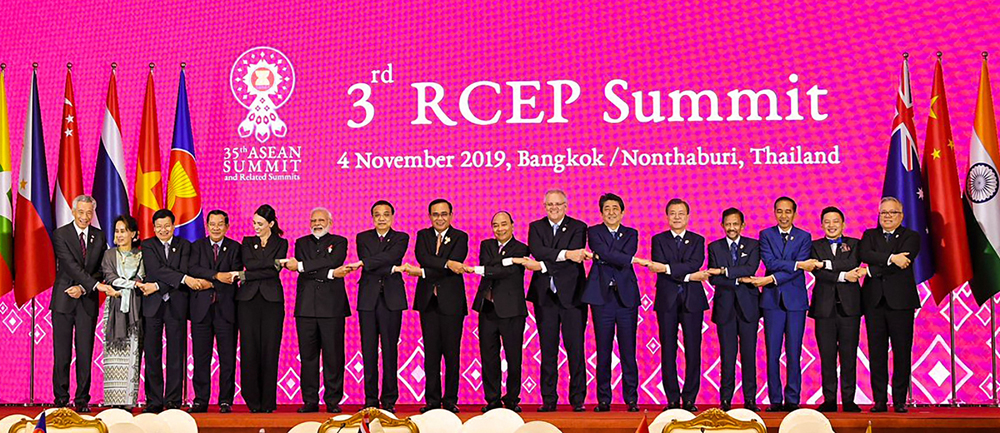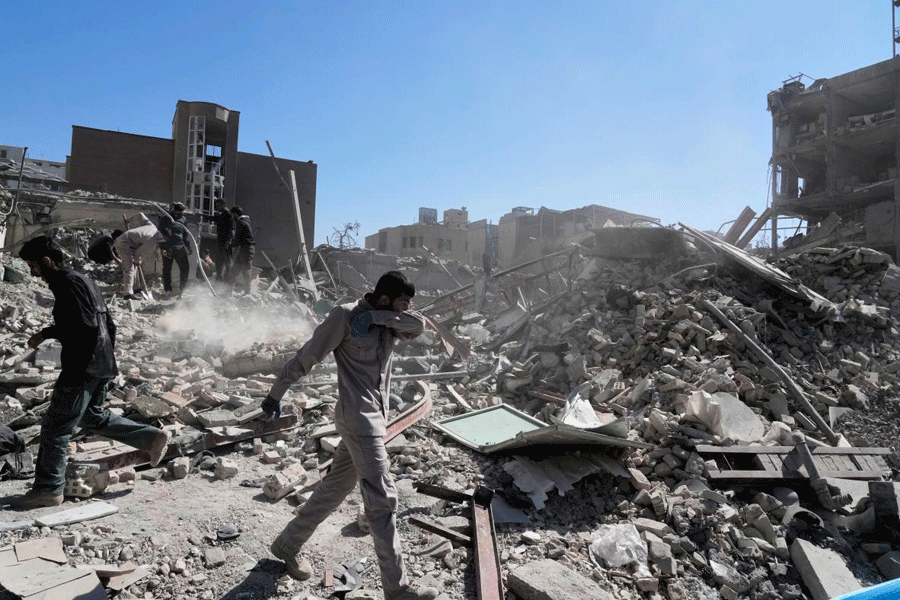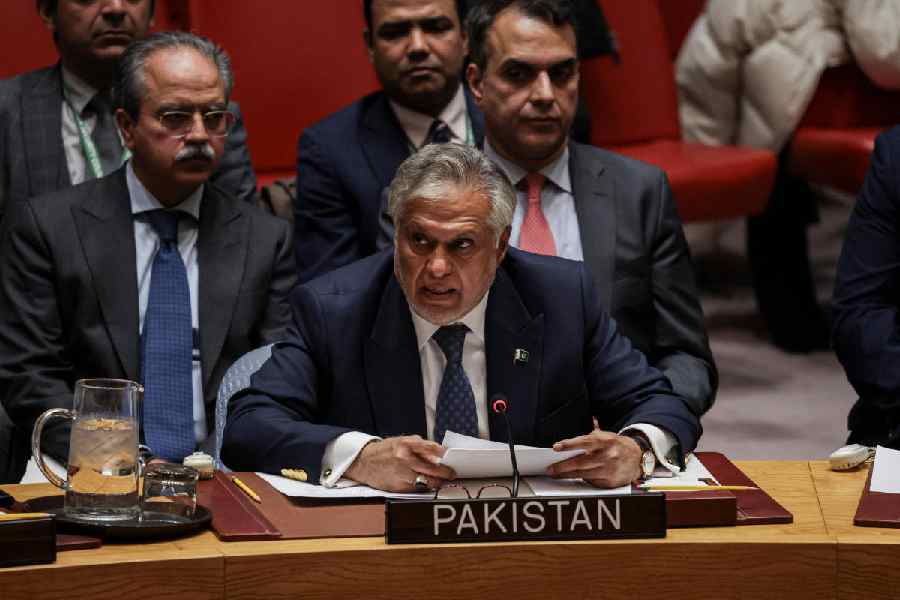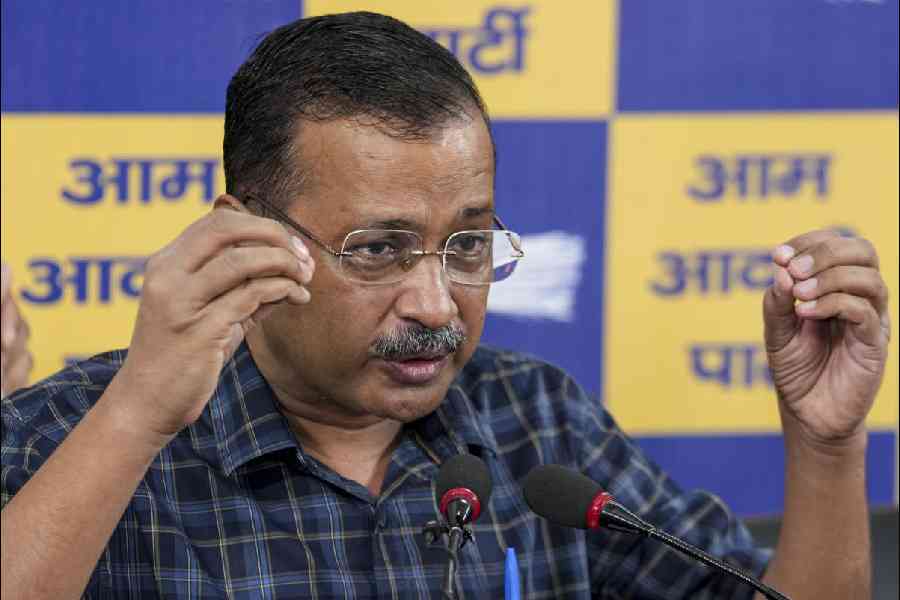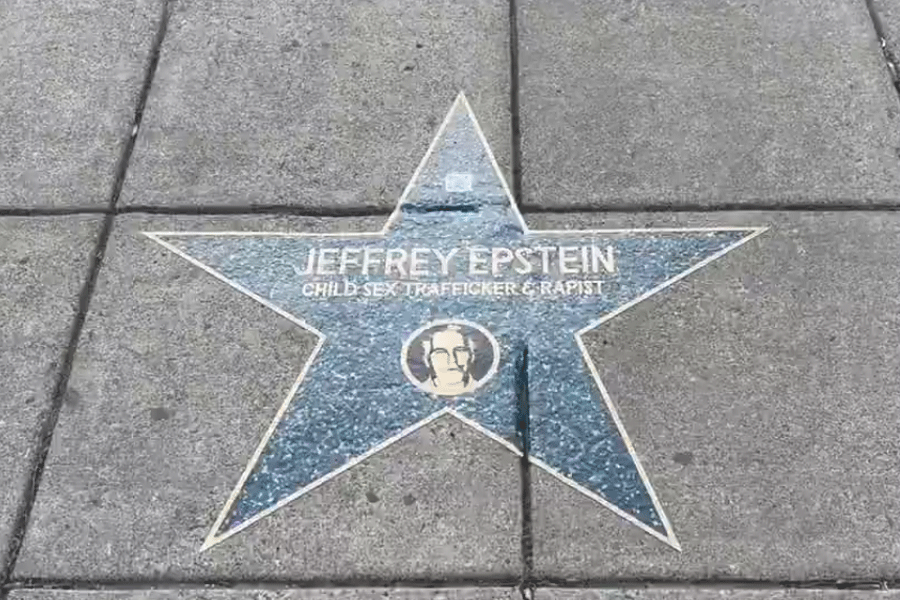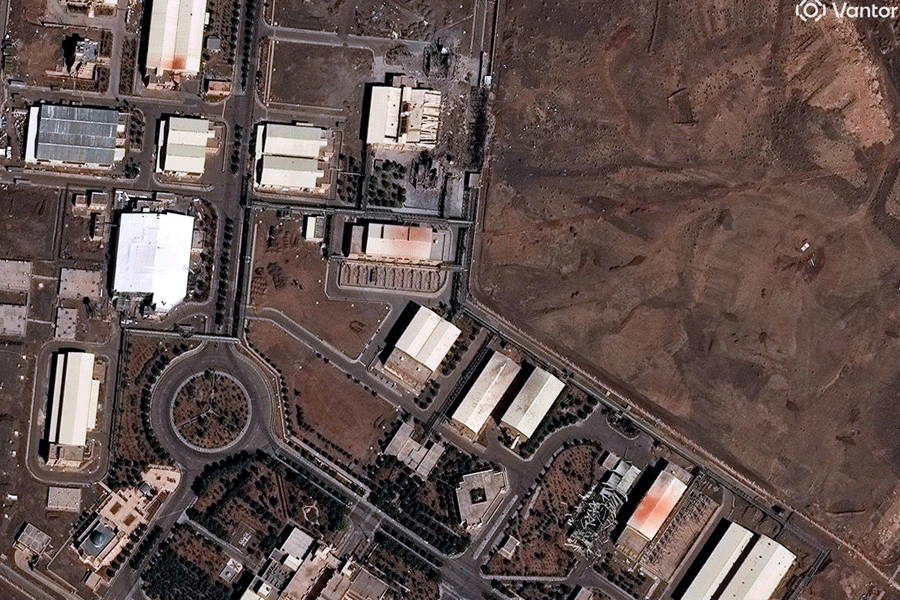Prime Minister Narendra Modi on Monday walked away from an agreement seeking to create the world’s largest free trade area — the Regional Comprehensive Economic Partnership (RCEP).
The move came after the 15 members of the new trading bloc failed to put in place safeguards that would shield India from becoming the dumping ground of the new Asia-Pacific alliance.
India baulked at the opportunity to join the new trading bloc, which aims to encapsulate half the world’s population, accounting for almost 40 per cent of global trade and 35 per cent of the world’s GDP, because it failed to extract the requisite assurances from the other members that would protect its interests.
The RCEP is backed by China and brings in the 10-member Association of Southeast Asian Nations (Asean), Japan, South Korea, Australia and New Zealand.
China has been pressuring the other nations to quickly sew up the deal as it battles a severe slowdown in its economy resulting from its bruising trade battle with the US.
President Donald Trump had already skewered plans to create another free trade grouping when he withdrew from the Trans-Pacific Partnership after assuming office in 2017.
The RCEP deal could have forced India to reduce duties on 90 per cent of its tariff lines and could have triggered a flood of Chinese goods that would have flattened domestic enterprises and seen India’s trade deficit with Beijing balloon from the existing $53 billion at the end of 2018-19.
Officials said that if India went ahead with the deal in its present form, it would have had to reduce or eliminate duties on about 74-80 per cent of goods imported from China.
India also has a trade deficit with 11 of the 15 nations that form the RCEP.
Various sectors of industry including dairy, metals, electronics and chemicals had been urging the government not to agree to duty cuts in these segments. The country has been planning to cut or axe duties on a range of products over a longer period, extending to 25 years.
The 15 members of the RCEP concluded their text-based negotiations on the 20 chapters of the agreement, which guarantees market access to their goods and services, but left the door open for India to join them at a later date.
The agreement will now be “legally scrubbed” before the member nations sign the deal sometime next year.
India quibbled over several sticking points in the deal, including the base year for customs duty reductions, strict rules of origin to stop countries like China and Korea from using Thailand and Indonesia as staging posts for the export of their products to India, minimum value-addition criteria for assembly plants in these “proxy” countries, and a safeguard mechanism that would trigger emergency duties whenever there is a surge in the import of a category of products.
“The present form of the RCEP Agreement does not fully reflect the basic spirit and the agreed guiding principles of the RCEP. It also does not address satisfactorily India’s outstanding issues and concerns. In such a situation, it is not possible for India to join the RCEP Agreement,” Prime Minister Narendra Modi said.
“When I measure the RCEP Agreement with respect to the interests of all Indians, I do not get a positive answer. Therefore, neither the talisman of Gandhiji nor my own conscience permits me to join the RCEP.”
Modi was referring to Mahatma Gandhi’s famous counsel to people in authority: “I will give you a talisman. Whenever you are in doubt, or when the self becomes too much with you, apply the following test. Recall the face of the poorest and weakest man you have seen and ask yourself if this step you contemplate is going to be any use to him.”
Asean leaders and six other countries had launched the RCEP negotiations during the 21st Asean Summit in Phnom Penh in November 2012.
The objective of launching the negotiations was to achieve a modern, comprehensive, high-quality and mutually beneficial economic partnership agreement among the Asean members and their FTA partners.
“Today, when we look around, we see during the seven years of RCEP negotiations, many things including the global economic and trade scenarios have changed. We cannot overlook these changes,” Modi added.
“India stands for greater regional integration as well as for freer trade and adherence to a rule-based international order. India has been pro-actively, constructively and meaningfully engaged in the RCEP negotiations since inception. India has worked for the cherished objective of striking balance, in the spirit of give and take.”
Vijay Thakur Singh, secretary (east) in the external affairs ministry, said: “India conveyed its decision at the summit not to join the RCEP agreement. This reflects both our assessment on the current global situation as well as fairness and balance of the agreement. India had significant issues of core interests that remained unresolved.”
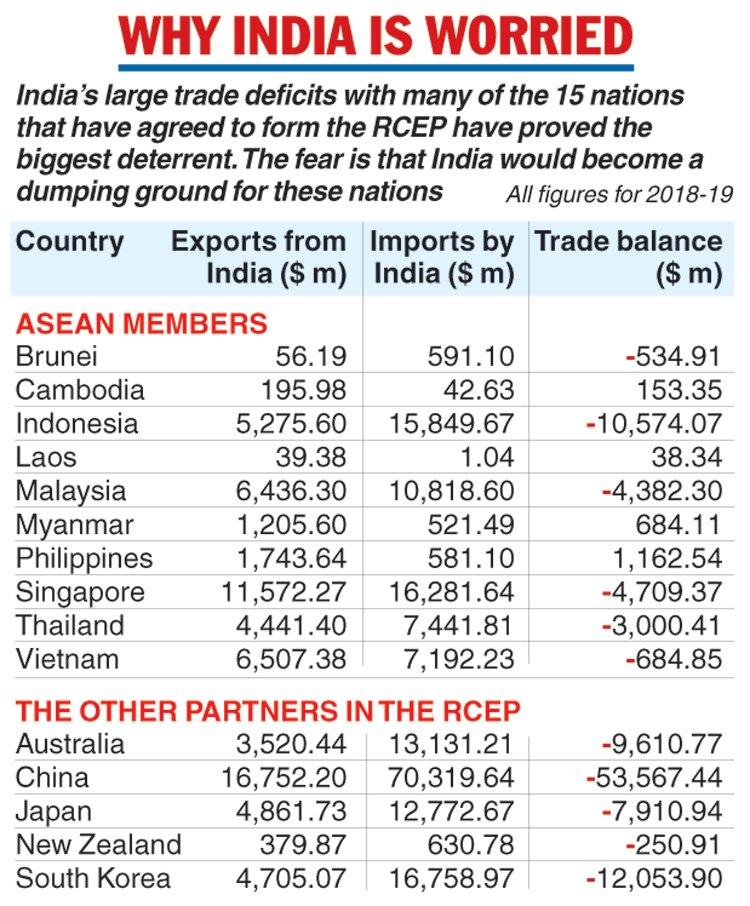
The Telegraph
Political race
The BJP and the Congress raced to take credit for India’s decision to stay out of the bloc, although the governments of both parties since 2012 have been keen on joining the group.
Congress media in-charge Randeep Surjewala tweeted: “A forceful opposition by @INCIndia & @RahulGandhi ensures that BJP Govt backs down from bartering the interests of farmer, dairy producers, fishermen, small & medium businesses at the altar of political expediency. A victory for all fighting for protecting national interests.’’
BJP president Amit Shah was not far behind. “PM @narendramodi’s firm stand over the years of not going ahead with a deal if our interests are not taken care off, is a welcome break from the past, where a weak UPA government ceded precious ground on trade and could not protect national interest,” Shah tweeted.
The Congress had the advantage of the optics as it had convened a meeting of Opposition parties earlier in the day to consider coordinated action to mobilise opinion on the economic slowdown and RCEP. But it was the RSS affiliate Swadeshi Jagran Manch which did the actual heavy lifting in this case, as did the Left parties and farmer organisations with far less heft.
The Congress joined the bandwagon belatedly — just about a fortnight ago — but once on it, kept its guns trained on the issue, billing it as a body blow to the sluggish economy and belonging to the same league as demonetisation and the ill-prepared GST rollout.

